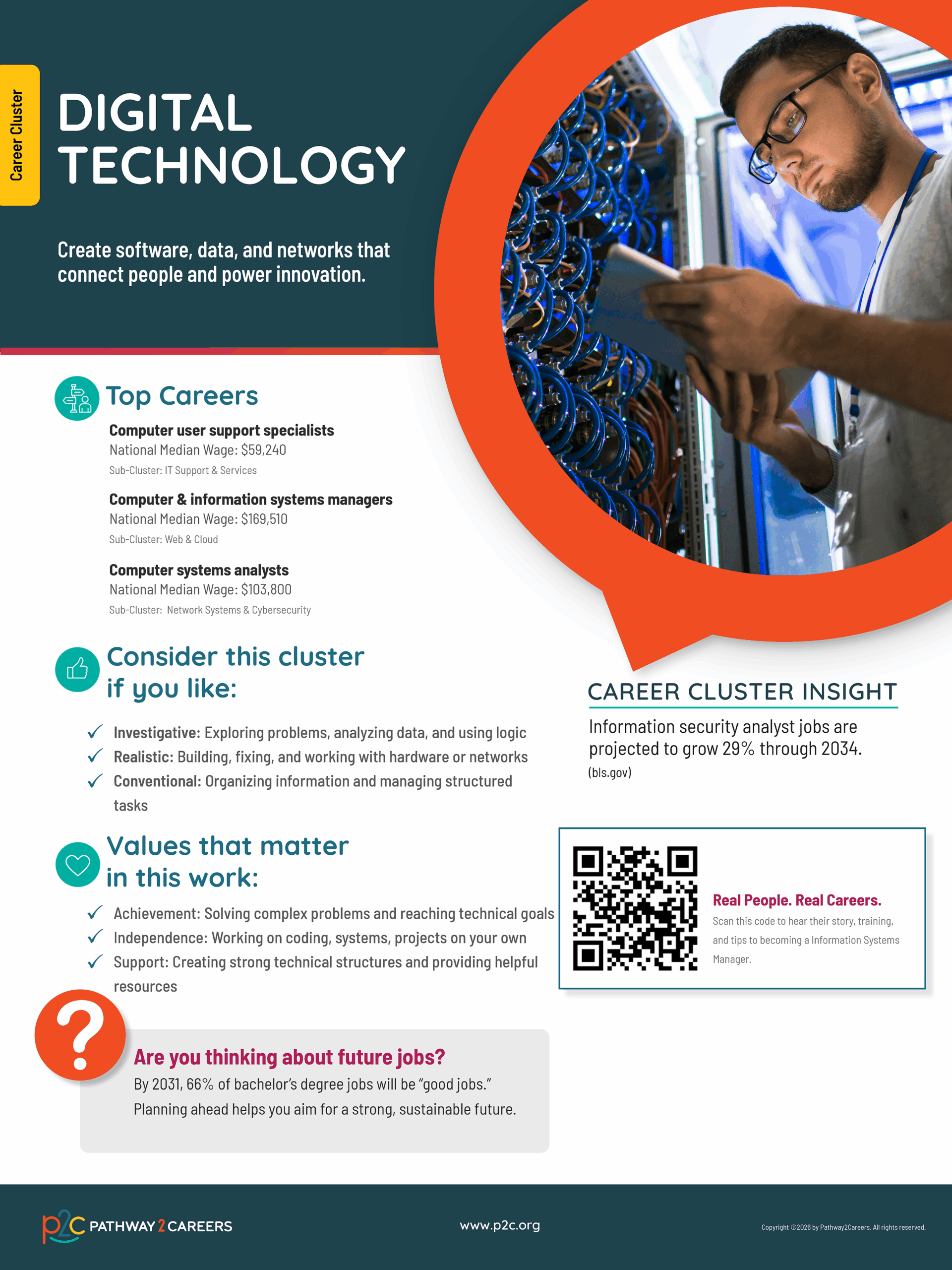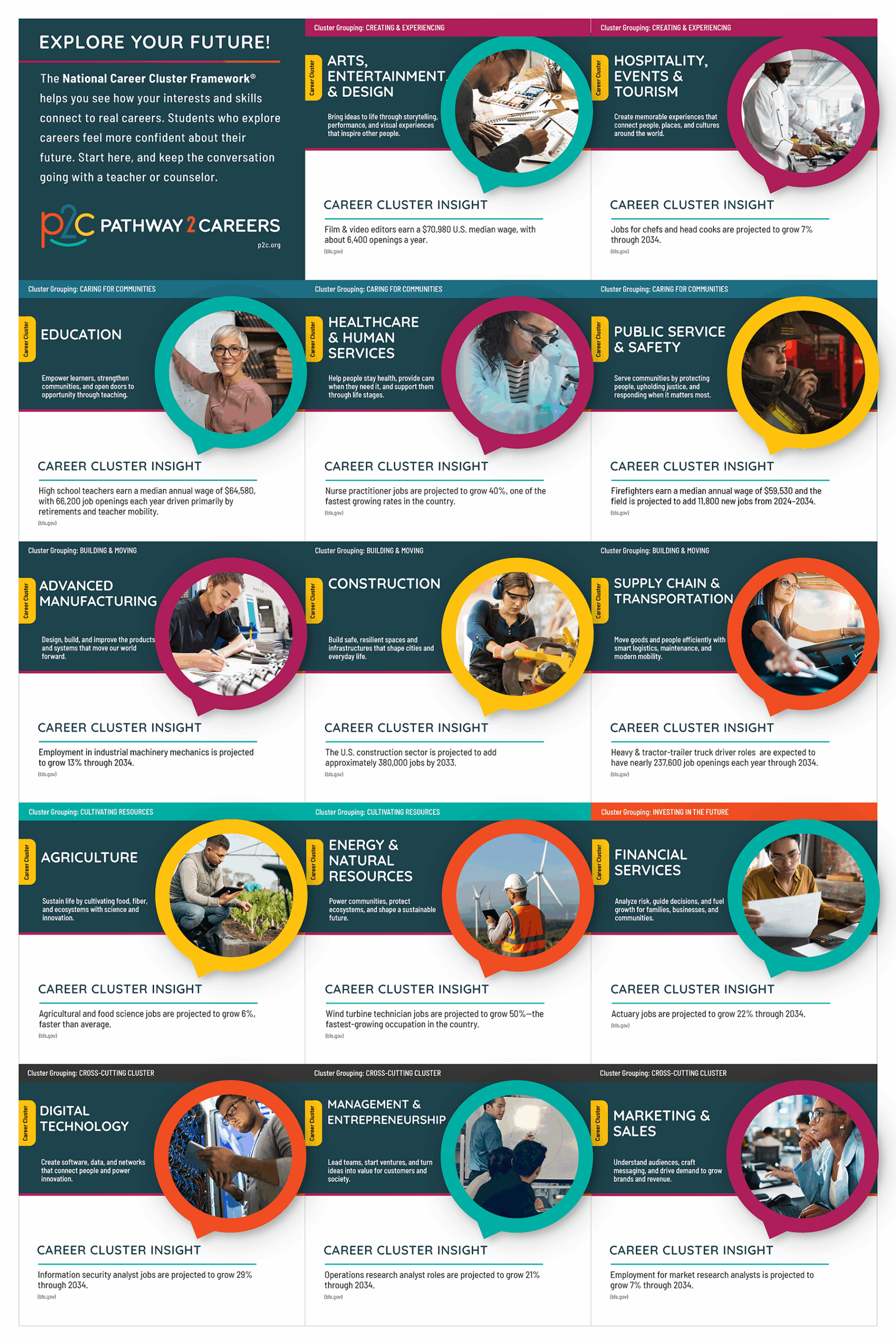
Give students a simple, engaging way to explore career options, discover how interests and values fit with career choices, and see how real jobs fit within each Career Cluster.
What You’ll Get
- One poster per Career Cluster (14 total)
- Sized at 11×17 for easy display in classrooms, counseling spaces, and hallways
- Spotlights top careers, median wages, student interests, and values
- Features industry trends + QR codes to Career Stories videos
Click on the above image to view the full sample poster
Career Spotlight Posters (14)
- Spotlights one career per cluster (14 total)
- Designed for 11×17 display
- Features median wages and training/education requirements
- Showcases Career cluster alignment + QR codes to Career Stories videos
Click on the above image to view the full sample poster
Career Clusters Wall Poster (1)
Limited quantities available. Wall posters will be mailed while supplies last.
- One large reference poster showing all 14 Career Clusters
- 24×36 wall poster, mailed at no cost upon request
- Helps students see how careers connect across interests and pathways
Click on the above image to view the full poster
Designed for Career Exploration, Anywhere Students Learn
️✅ Introduce Career Clusters in advisory, CTE, or counseling sessions
️✅ Show students the connection between interests and values within each Career Cluster
️✅ Support career conversations without needing a full lesson plan
️✅ Reinforce pathways and labor market relevance visually
Get Your Career Clusters Posters



